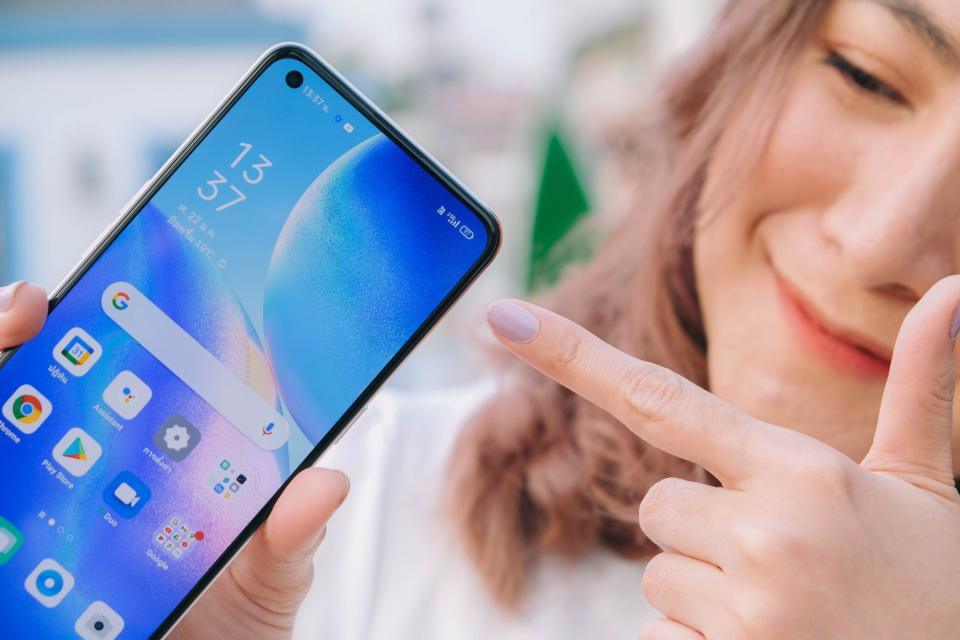Chinese smartphone vendors from Meizu to Oppo step up AI integration in their devices amid expected industry recovery in 2024
Chinese smartphone vendors from Meizu to global top five-ranked Oppo are accelerating efforts to integrate generative artificial intelligence (AI) technology into their handsets to boost sales, as the industry expects to recover this year from a lengthy slump.
Meizu, which was acquired in 2022 by carmaker Zhejiang Geely Holding Group, on Sunday announced that it will "terminate new projects on traditional smartphones" to pursue an "all in AI" strategy over the next three years, according to a statement posted in the firm's WeChat account.
Headquartered in Zhuhai, a city in southern Guangdong province, Meizu said it will develop devices and a customised mobile operating system that would be open to all large language models (LLMs) - the technology used to train generative AI services - including those from Microsoft-backed OpenAI, creator of ChatGPT.
Do you have questions about the biggest topics and trends from around the world? Get the answers with SCMP Knowledge, our new platform of curated content with explainers, FAQs, analyses and infographics brought to you by our award-winning team.
"Meizu will build an ecosystem to fully open its AI devices to leading global LLM providers, including OpenAI, to jointly promote AI innovation and development," the company said.

An Oppo internal letter released on February 18, 2024, said the impact of artificial intelligence on its industry would be comparable to the period when smartphones replaced feature phones. Photo: Shutterstock alt=An Oppo internal letter released on February 18, 2024, said the impact of artificial intelligence on its industry would be comparable to the period when smartphones replaced feature phones. Photo: Shutterstock>
Increased AI integration in Chinese smartphones shows how a new tech arms race in the industry is heating up, several weeks after Samsung Electronics unveiled its new Galaxy S24 handsets with AI features based on Google's Gemini technology.
Oppo - the world's fourth-largest smartphone vendor in 2023, according to research firm IDC - also announced on Sunday the start of its "AI phone era", as it pushes forward the development of its own LLM called AndesGPT, according to an internal letter from company founder and chief executive Tony Chen Mingyong.
"The new wave of AI technology, powered by LLMs, is restructuring the future of the mobile phone industry," Chen said. "The impact of AI on the handset industry in the next five years is comparable to when smartphones replaced feature phones."
He said Oppo is preparing itself for this new era by focusing more resources on AI, including its establishment of a dedicated AI centre.
Weeks before Samsung launched its Galaxy S24 handsets, tech research firm Counterpoint already forecast global shipments of generative AI-enabled (GenAI) smartphones to reach more than 100 million units this year, up from about 47 million in 2023, and rapidly expand to 552 million by 2027.
GenAI handsets, a subset of AI smartphones, use generative AI technology to create original content, rather than just provide preprogrammed responses or perform predefined tasks, according to Counterpoint. These devices will run AI models natively and come with certain hardware specifications.
"AI has been a feature of smartphones for the last few years," Counterpoint vice-president and research director Peter Richardson said in the report published on December 20.
"We now expect to see the emergence of smartphones optimised to run generative AI models," Richardson said. "The likely use cases will include creating more personalised content, smarter digital assistants with unique personalities and conversation styles, content recommendations, and more."
Meizu on Sunday said its pivot to AI was caused by a combination of factors, including a prolonged smartphone upgrade cycle and intensified industry competition.
Oppo, which unveiled its AndesGPT LLM late last year, has pledged to enhance its own smart assistant Breeno to conduct more natural conversations and perform content- generation tasks.
Meanwhile, Samsung last month teamed up with Baidu to integrate the Chinese firm's LLM into its Galaxy S24 handsets. Their strategic tech partnership, however, has drawn lukewarm interest from consumers in mainland China, the world's biggest smartphone market, according to a South China Morning Post report earlier this month.
In January, an IDC report said global smartphone shipments declined 3.2 per cent year on year to 1.17 billion units in 2023. While that marked the lowest full-year volume in a decade, the research firm indicated that "growth in the second half of the year has cemented the expected recovery for 2024".
This article originally appeared in the South China Morning Post (SCMP), the most authoritative voice reporting on China and Asia for more than a century. For more SCMP stories, please explore the SCMP app or visit the SCMP's Facebook and Twitter pages. Copyright © 2024 South China Morning Post Publishers Ltd. All rights reserved.
Copyright (c) 2024. South China Morning Post Publishers Ltd. All rights reserved.

 Yahoo Finance
Yahoo Finance 